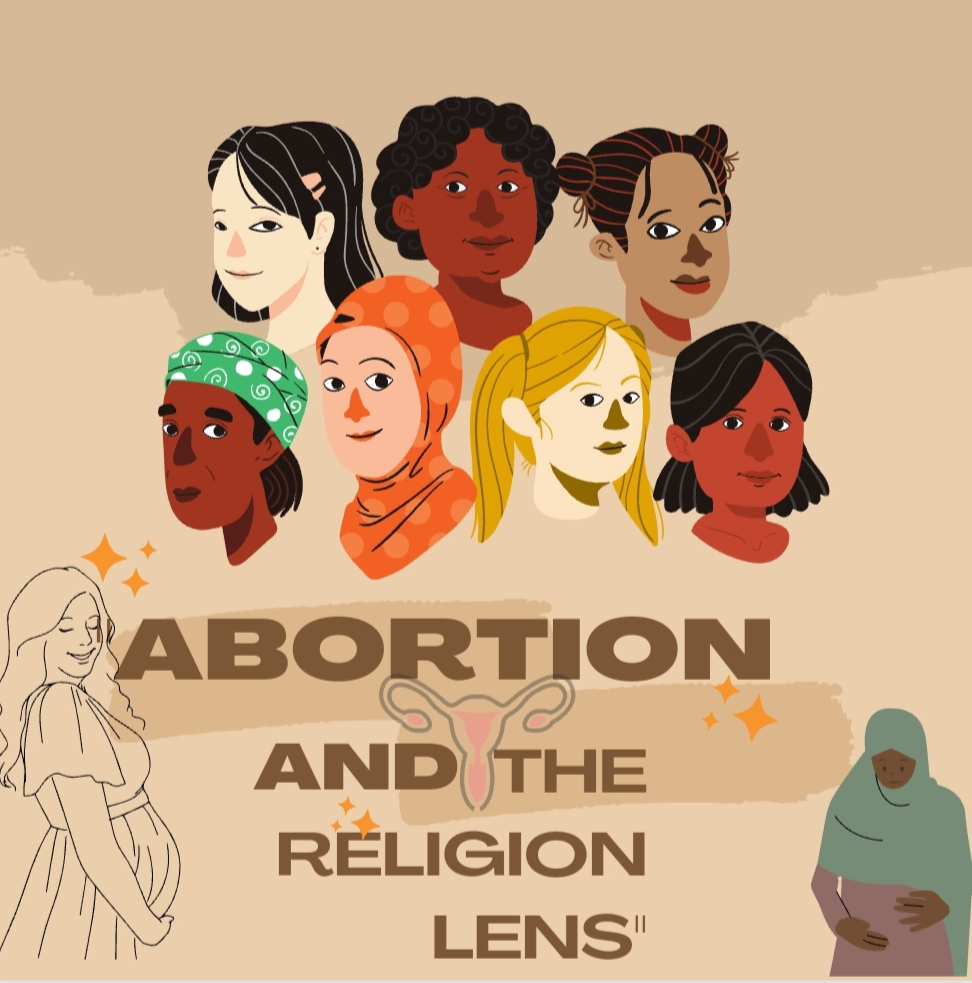Abortion and the Religion Lens
Abortion equivalent to murder logic has been prominent in our society and even propagated through movies. “We don’t want to be murderers, right?” says Deepti Batra (Kareena Kapoor) to her husband Varun Batra (Akshay Kumar) in their famous 2019 film Good Newwz. And if you all might have remembered or guessed, they were talking about abortion. Now the question arises: What exactly is abortion and the Right to Abortion, and why is there so much fuss around it?
WHO defines abortion as “pregnancy termination prior to 20 weeks' gestation or a fetus born weighing less than 500 g”. Right to Abortion simply means that a woman has the right to abort, and it depends on her will and decision. In India, Abortion has been legal under various circumstances since the introduction of the Medical Termination of Pregnancy (MTP) Act 1971. So, now the question arises as to why most people are still against abortion. And we will try to look at this issue from the lens of ‘Religion.’
Karl Marx said that ‘Religion is the opium of the masses.’ Religion is a significant identity for people today, which gives them a sense of belongingness.
In Zoroastrianism, The Avesta, Shayast-Nashayast, and Arda Viraf Nameh are among the Zoroastrian Holy Scriptures that specifically refer to abortion. Zoroastrian moral traditions hold that abortion is wrong for two reasons: the contamination brought on by the dead body and the killing of an innocent and inherently good person.
Ahimsa, Karma, and rebirth are the three primary Hindu ideas that influence moral considerations on abortion. Hindus believe that because a fetus is reincarnated and already a person, it possesses a soul from creation. Accordingly, they hold that killing an innocent person is contrary to the idea of Ahimsa and imposes a heavy karmic penalty on the perpetrator and that abortion purposefully interferes with reincarnation. These two religions both take a pro-life stance and consider abortion a threat to human life.
In Christianity, The Catholic Church’s official view on abortion and any artificial birth control is a ‘NO.’ However, some Catholics advocate for abortion access because of their dedication and a different interpretation of Catholic teachings. Catholics for Choice, an organization that supports individuals' right to make their own decisions based on strong moral convictions, claims that the foundation of its work is the Catholic Church's emphasis on "social justice, human dignity, and the primacy of conscience." Other Christians claim that their faith influences their support for abortion rights.
Surprisingly, Sharia Law is pretty fluid regarding abortion as it is the belief “…that a woman’s life should be prioritized over an unborn fetus,” notes Al Jazeera. More than that, in Islam, it is believed that a fetus does not become a “life” until approximately 40-120 days into a pregnancy when it gets its soul, explains Al Jazeera. Islam believes that a woman's decision should be the ultimate one in case of an abortion to decide the best for herself and her family.
In Sikhism, although there is no direct notation in scriptures to indicate that abortion is a sin, the common belief among the Sikh community is that abortion is wrong “…as it interferes in the creative work of God – who created everything and is present in every being,” explains BBC. The idea here is similar to Hinduism, which sees a fetus as a person having a life of its own.
In Jainism, abortion is not an acceptable practice as it is seen as taking a life since it is believed that the fetus is ‘alive’ on the day of conception. The leaders at the Digambara Jain institutions also explain the act of aborting a fetus as related to one’s karma. If a woman seeks an abortion, she and everyone involved will take the “penalty of karma” as all beings do for the harms they cause.”
There is no single Buddhist view on abortion. Buddhists believe that life should not be destroyed, but they only consider causing death morally wrong if it is done intentionally or recklessly. Abortion is unacceptable in traditional Buddhism since it involves the willful destruction of life. The morality of abortion, however, is a topic on which modern Buddhists disagree significantly. Abortion is undoubtedly a killing act and is generally wrong from a Buddhist perspective. But that depends on the situation. There may be an exception if the unborn child is retarded or the parent experiences severe difficulties due to the birth.
There are countless religions in this world with their beliefs and interpretations. However, we can still conclude that most religions seem to see abortion as the killing of an “alive” person. While we are not saying that these religions shape the laws, it is unavoidable that religious beliefs shape our thinking. In most cases, they make it difficult for a woman to practice her Right to Abortion.
Written by-
Anushka Srivastava,
Content Associate




Comments
Post a Comment